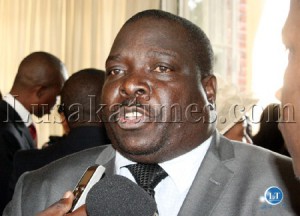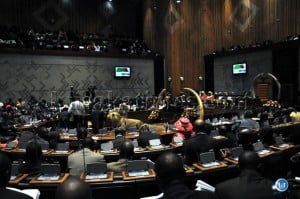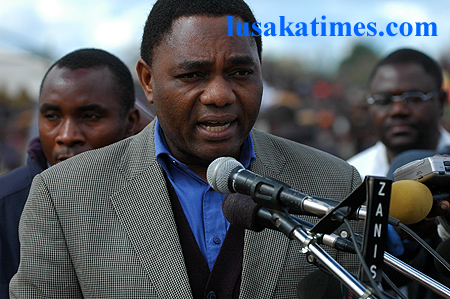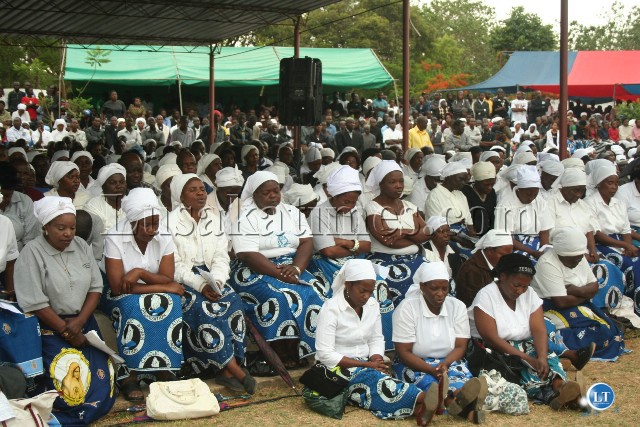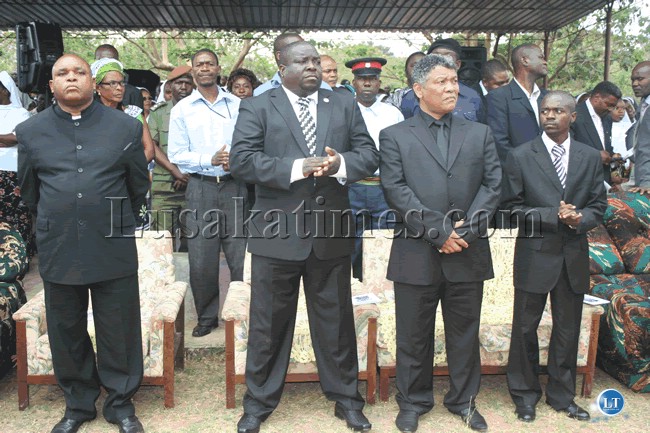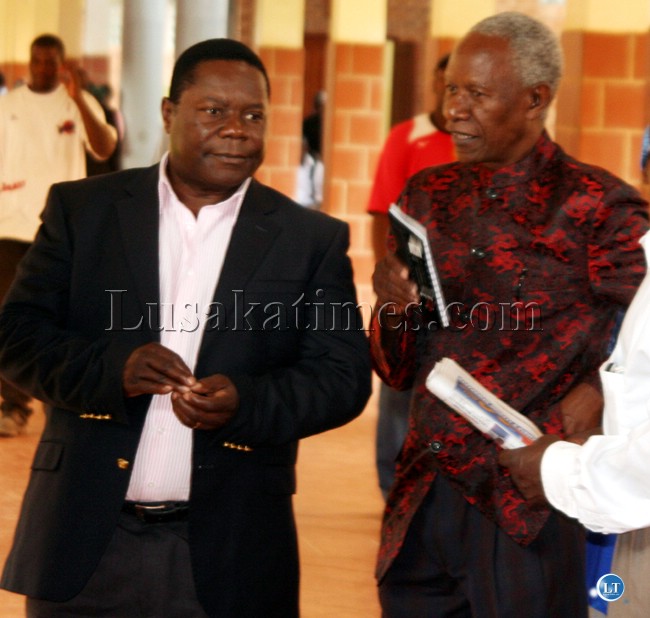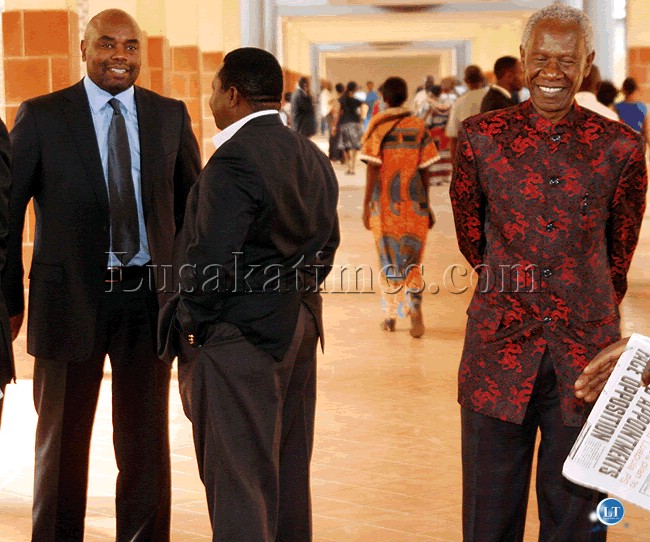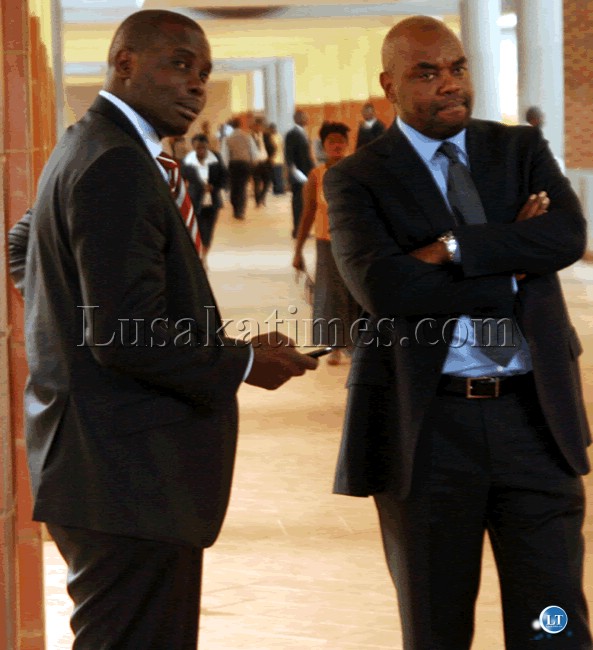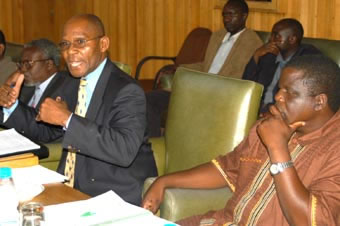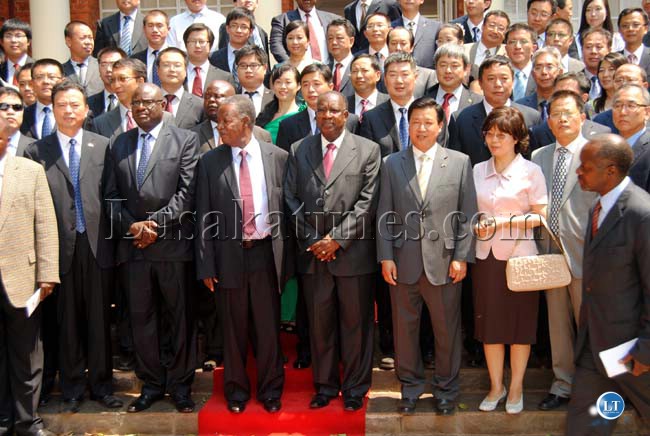
THE Mineworkers Union of Zambia (MUZ) has refused to entirely blame the Chinese-owned mining companies over the ‘flouting’ of the country’s labour laws saying Chinese investors have certain positives that have benefited Zambians in many ways.
Newly-elected MUZ president Oswell Munyenyembe said in an interview yesterday in Kitwe his union cannot entirely blame the Chinese companies because other mining houses are equally culprits.
“We cannot wholesomely condemn the Chinese-owned mining houses. Remember when we had the global crisis, no worker was retrenched at any Chinese mine. Yes, they have their own problems like mistreating workers and not following labour laws, but other mining houses are also culprits in this area. It is not only the Chinese mining companies,” he said.
Mr Munyenyembe, however, urged the Chinese companies to ensure that they follow the country’s labour laws and desist from harassing their workers.
[pullquote]“We cannot wholesomely condemn the Chinese-owned mining houses. Remember when we had the global crisis, no worker was retrenched at any Chinese mine. Yes, they have their own problems like mistreating workers and not following labour laws, but other mining houses are also culprits in this area. It is not only the Chinese mining companies,” he said.[/pullquote]
He was reacting to the report released by the United Kingdon-based Human Rights Watch (HRW) in which the watchdog has accused Chinese minies of abusing workers and blamed Government for being indifferent to the plight of the miners.
Mr Munyenyembe said investors must work hand in hand with their workers to promote industrial harmony. “We want the Chinese and other investors in the mining industry to respect the labour laws, to respect rights of their workers. They must pay the workers well and they must ensure that the safety of the people is a priority,” Mr Munyenyembe said.
And Government says not only Chinese Mining companies have been flouting labour laws but all employers should try and ensure their workers are properly looked after. Deputy Minister of Labour Rayford Mbulu says Government has been prompted to quickly and effectively revise labour laws and regulations because of revelations that have shown how workers in the country continue to be exploited because of the harsh conditions of service they operate under.
Mr Mbulu said Government intends to put in place laws which will ensure companies that flout them are slapped with stiff sanctions to deter others. He said in an interview in Lusaka that the country’s current labour laws are intolerable because they do not adequately address issues that are on the ground.
“The labour laws in the country are intolerable, and we need to put in place stiffer laws and penalties that will make people responsible when they abrogate them,” he said. He said issues concerning safety of workers should be the priority of any company because this reduces accidents making the company more productive.
On Thursday a report by Human Rights Watch (HRW) said Chinese mining companies in Zambia, were routinely flouting laws designed to protect workers’ safety and the right to organise. The New York-based body urged President Michael Sata to follow through on campaign promises to stamp out abuse of workers in the sector.
China’s Foreign Ministry dismissed the report, saying Beijing had been working closely with African countries to ensure all cooperation was beneficial to both sides, and that workers’ rights were protected.
“We have promoted employment there and contributed to the economic and social development of African countries,” spokesman Hong Lei said.
The 122-page study detailed persistent abuses in Chinese-run mines, including poor health and safety conditions, and regular 12-hour and even 18-hour shifts involving arduous labour — all in violation of Zambian law.
Furthermore, HRW said mine bosses routinely threatened to fire workers who refused to work in dangerous locations underground or tried to report their grievances to mining regulators.
The four Chinese-run copper mining companies in Zambia are subsidiaries of China Non-Ferrous Metals Mining Corporation (CNMC), a state-owned enterprise.
[pullquote]Opposition leader Sata came to power in September on the back of a populist election platform that included virulent criticism of Chinese mining investment. Since taking office, he has toned down his rhetoric and stressed the need for foreign investment, but has made clear that all companies must observe labour laws.[/pullquote]
CNMC denied the allegations, saying miners’ safety was its highest priority and that the company had achieved an unprecedented 26 months without any fatal accidents from September 2006 to October 2008.
Copper mining is the lifeblood of Zambia ‘s economy, contributing nearly three-quarters of its foreign exchange earnings, while China is the biggest investor, having sunk more than $2 billion into the sector.
“China’s significant investment in Zambia’s copper mining industry can benefit both Chinese and Zambians,” said Daniel Bekele, HRW’s Africa director.
“But the miners in Chinese-run companies have been subject to abusive health, safety, and labour conditions and long-time government indifference.”
Opposition leader Sata came to power in September on the back of a populist election platform that included virulent criticism of Chinese mining investment. Since taking office, he has toned down his rhetoric and stressed the need for foreign investment, but has made clear that all companies must observe labour laws.
After his victory, analysts said Sata was unlikely to make drastic changes for fear of derailing an industry goal of doubling annual copper output to 1.5 million tonnes by 2016 — an increase that will also enrich Zambia’s treasury.
Other mining firms in Zambia include Canada’s First Quantum Minerals and Barrick Gold , London-listed commodity giant Glencore and Vedanta Resources , South Africa’s Metorex .
HRW said its research was based on three field visits between November 2010 and July 2011 and drew on more than 170 interviews with workers from both Chinese and other companies.
Eleven workers were shot and wounded during a pay dispute at a Chinese-run mine last year, though attempted murder charges against two Chinese managers were later dropped.
Five other miners were hurt during a similar confrontation at a different mine in 2005
[Zambia Daily Mail]




